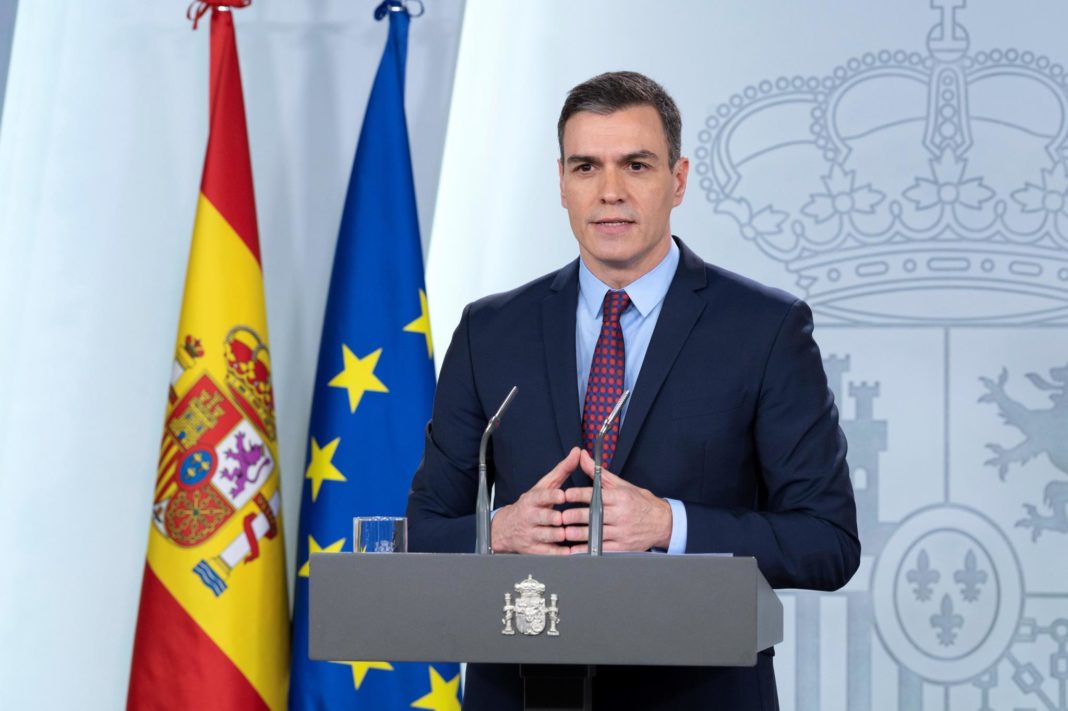The Spanish Government this weekend agreed to expand the measures aimed to ease the financial burden on households, including lowering IVA on electricity to 5%, extending the limitation on rent increases and the fuel discount, approving incentives for public transport and providing direct aid of 200 euro for those on low incomes, whilst raising non-revenue contributary pensions by 15%.
After the extraordinary meeting of the Council of Ministers, the President of the Government, Pedro Sánchez, stressed that the Executive is well aware of the difficulties that families and companies are going through due to the rise in prices, caused above all by the Russian invasion of Ukraine.
The first Response Plan – he added – has cushioned the effects of this international crisis, but inflation continues to slow down the recovery and uncertainty remains throughout the world, so additional measures are necessary. The Government estimates that the set of actions will contain the rise in prices by 3.5 points.
The Council of Ministers has approved a Royal Decree-law by which urgent measures are adopted within the framework of the National Plan to respond to the economic and social consequences of the war in Ukraine, whose validity is extended until December 31. The text will entail a budgetary effort of more than 9 billion euro – some 5,5 in spending and 3,6 in reduced income due to tax cuts. In total, until the end of 2022, the Government will have allocated nearly 15 billion euro to this objective.
Protection against energy prices
A first set of initiatives seeks to protect consumers, especially the most vulnerable, from rising energy prices. IVA on electricity goes from 10% to 5% from July 1 to the end of the year and the rest of the measures in force remain in force, such as the extension of social bonus discounts or the reduction of other taxes linked to electricity. It should be noted that IVA had already been discounted from 21%.
The new decree also extends the bonus of 20 cents per litre in the price of motor fuel until December 31. In addition, with the aim of promoting public transport, a 50% reduction in the price of all monthly subscriptions and of any multi-trip land transport ticket provided by the state entities is approved; the reduction will be 30% for subscriptions from the autonomous communities or local entities, which may complete the measure with their own resources up to 50%. Sánchez has indicated that the reduction will apply from September 1 to December 31.
Increase in the Minimum Vital Income and non-contributory pensions
In addition, the regulation includes specific measures for the most vulnerable people. The temporary increase of 15% of the Minimum Vital Income, the prohibition of the suspension of the supply of electricity, gas and water, and the 2% cap for the annual update of the rent of the habitual residence are maintained. The suspension of evictions from habitual residences for vulnerable individuals and families is also extended. And the increase in energy costs will continue without being able to constitute an objective cause for dismissal in companies that receive aid provided for in the Decree-law.
The president has highlighted three additional measures in this area: the 15% increase in non-contributory retirement and disability pensions until December 31; a direct aid of 200 euro for employees, self-employed and unemployed registered in employment offices residing in households with an income of less than 14,000 euro, a single payment that can be requested during the month of July; and the freezing of the maximum price of the butane cylinder until the end of the year at 19.55 euro.
Support to the most affected sectors
Another group of actions focuses on the sectors most affected by the rise in prices: the postponement in the payment of Social Security contributions for the fishing, agricultural and urban and road transport sectors is extended until September; Direct aid is allocated to gas-intensive industries and those already existing against drought are expanded, among other initiatives.
Tax on extraordinary profits of energy companies
Sánchez has announced that the Government is designing a new tax that will target the extraordinary profits of energy companies as a result of the rise in energy prices.
The president stressed that this initiative is in tune with similar ones that are being adopted in European countries and meets the recommendations of international organisations such as the European Commission, the OECD and the IMF. Sánchez has defended that the burdens of the situation must be distributed fairly and that those who are obtaining indirect revenue from the price increase must make an “additional contribution to the collective effort”.
The tax will be presented in the coming weeks as a bill by the two parties of the government coalition to enter into force on January 1, 2023.





